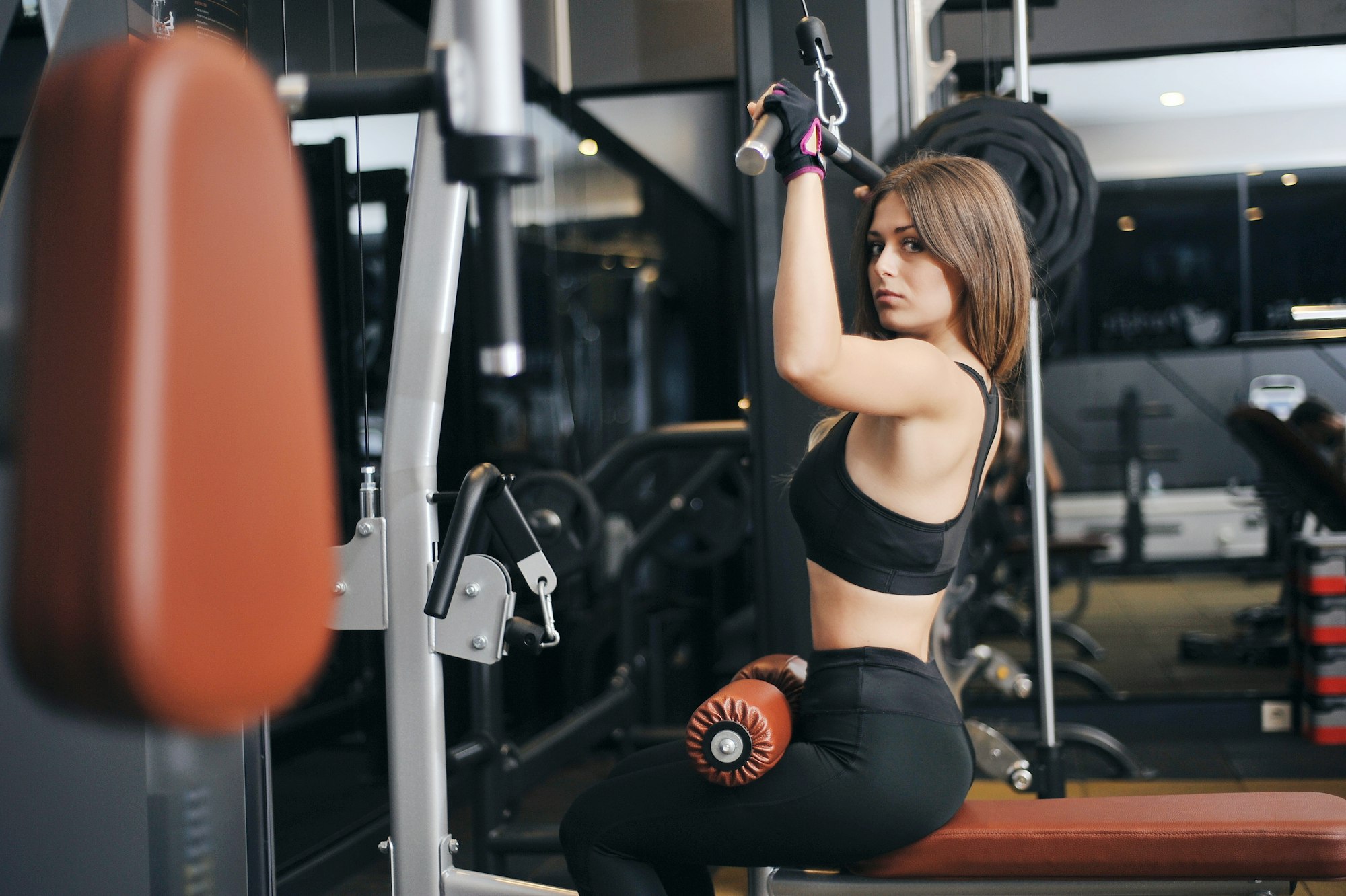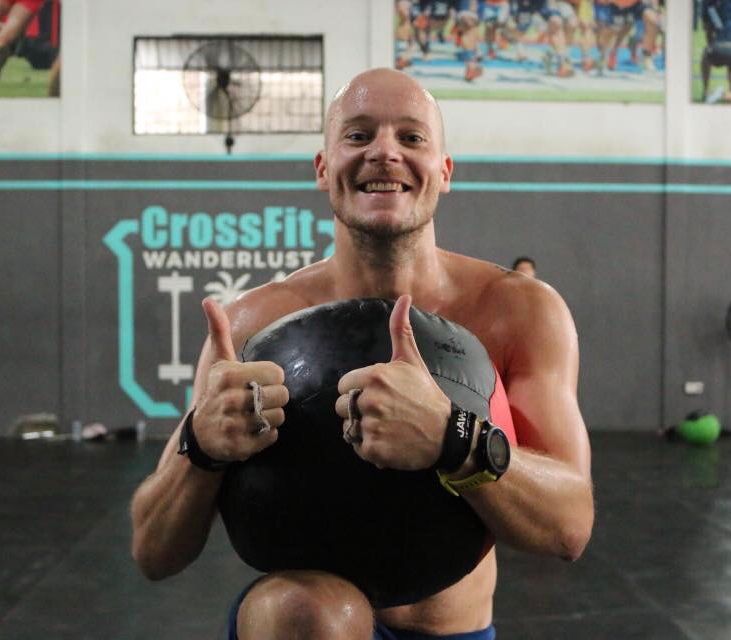Overcome Gym Anxiety: Top 12 actually helpful tips

Gym anxiety is a common feeling of self-consciousness, nervousness, or fear when working out in a gym. It can stem from fear of judgment, a lack of confidence in using equipment, or intimidation by others' fitness levels.
Studies show that many people, especially beginners or those returning after a long break, experience gym anxiety. It affects all ages, genders, and fitness levels, making it a widespread issue in the fitness community.
Gym anxiety is a common issue that prevents many people from starting or sticking with a fitness routine. Gym anxiety can hold you back from achieving your health and fitness goals.
Tip 1: Find a gym buddy or swolemate
Having a gym buddy can alleviate gym anxiety by providing accountability, support, and motivation. Working out with a friend or "swolemate" can make the gym feel way less intimidating. Check out our article on the subject to learn more about the benefits of a gym buddy and finding a compatible workout partner.
Tip 2: Start with a plan and set realistic goals
Having a structured workout plan and setting achievable goals can significantly reduce gym anxiety. You'll feel more confident and focused in the gym when you have a clear idea of what exercises you'll be doing and what you aim to accomplish.
To create an effective workout plan:
- Consult with a personal trainer or use reputable online resources to design a program tailored to your fitness level and goals.
- Break down your long-term goals into smaller, manageable milestones to keep you motivated and on track.
- Be realistic with your expectations and timeline, understanding that progress takes time and consistency.
Having a plan doesn't mean you can't be flexible. Allow yourself room to adjust your workouts as needed based on how you're feeling or any time constraints you may have. The key is to have a general structure that guides your gym sessions, helping you stay organized and reducing anxiety about what to do next.
By starting with a plan and setting realistic goals, you'll be better equipped to confidently navigate the gym and make steady progress toward your fitness objectives.
Tip 3: Familiarize yourself with the gym environment
Being comfortable with the gym layout, equipment, and etiquette can reduce anxiety. Here are some ways to familiarize yourself with the gym environment:
- Visit during off-peak hours: If possible, go to the gym during less busy times to explore the facility and get a feel for the layout without feeling overwhelmed by crowds.
- Take a tour or attend an orientation: Many gyms offer tours or orientation sessions for new members. Take advantage of these opportunities to learn about the available equipment, classes, and amenities.
- Learn about gym etiquette: Understanding basic gym etiquette can help you feel more comfortable and avoid any awkward situations. This includes things like wiping down equipment after use, re-racking weights, and being mindful of others' personal space.
- Practice using equipment: If you're unsure how to use a particular machine or piece of equipment, don't hesitate to ask a staff member for assistance. They can provide guidance and demonstrate proper form to help you feel more confident.
- Observe others: While it's important not to compare yourself to others, observing how other gym-goers navigate the facility and use equipment can provide valuable insights and help you feel more comfortable in the environment.
Everyone was new to the gym at some point. By taking the time to familiarize yourself with the environment, you'll feel more at ease and be better prepared to tackle your workouts confidently.
Tip 4: Focus on your own progress, not others
It's easy to compare yourself to other gym-goers, but this can be detrimental to your confidence and motivation. Instead, focus on your own progress and celebrate your personal achievements.
- Avoid comparisons: Remember that everyone in the gym is at a different stage of their fitness journey. Comparing yourself to others can lead to feelings of inadequacy and increased anxiety.
- Celebrate your milestones: Take pride in your own accomplishments, no matter how small they may seem. Whether it's increasing your weights, running for an extra minute, or simply showing up consistently, acknowledge your progress and give yourself credit.
- Keep a workout journal: Tracking your workouts can help you stay motivated and focused on your own growth. Write down your exercises, sets, reps, and any other relevant notes. Over time, you'll be able to look back and see how far you've come, reinforcing your confidence and commitment to your fitness goals.
By shifting your focus inward and concentrating on your own progress, you'll be better equipped to overcome gym anxiety and enjoy your workouts. Remember, your fitness journey is unique to you, and every step forward is worth celebrating.
Tip 5: Practice positive self-talk and mindfulness
Negative self-talk and anxiety-inducing thoughts can make gym anxiety worse. To combat this, practice positive self-talk and incorporate mindfulness techniques into your workout routine.
- Use positive affirmations: Replace negative thoughts with positive ones. Instead of thinking, "I can't do this," try saying, "I'm getting stronger every day." Repeat these affirmations to yourself throughout your workout to boost your confidence and reduce anxiety.
- Incorporate mindfulness techniques: Mindfulness can help you stay present and focused on your workout rather than getting caught up in anxious thoughts. Try deep breathing exercises, focusing on your body's sensations, or visualizing yourself completing your workout successfully.
- Reframe negative experiences: If you have a less-than-perfect workout or feel self-conscious about something, try to reframe the experience as a learning opportunity. Reflect on what you can do differently next time, and remember that every challenge is a chance to grow and improve.
By practicing positive self-talk and mindfulness, you can shift your mindset and create a more supportive inner dialogue. This can help you feel more confident, reduce anxiety, and enjoy your workouts more.
Tip 6: Wear comfortable clothing that makes you feel confident
What you wear to the gym can significantly impact your confidence and overall experience. Choosing the right clothing can help you feel more comfortable and self-assured, reducing gym anxiety and allowing you to focus on your workout.
- Invest in well-fitting, comfortable gym attire: Look for clothes that fit properly, provide adequate support, and allow for a full range of motion. Avoid clothing that is too tight, restrictive, or revealing, as this can make you feel self-conscious or uncomfortable.
- Choose moisture-wicking fabrics: Opt for breathable, moisture-wicking materials that keep you cool and dry during your workouts. This can help you feel more comfortable and confident, even when you're sweating.
- Select colors and styles that boost your confidence: Pick gym clothes in colors and styles that make you feel good about yourself. Whether you prefer bold prints, sleek neutrals, or bright hues, choose items that align with your style and boost your confidence.
- Prioritize functionality: While style is important, ensure your gym clothes are functional and appropriate for your planned activities. For example, wear supportive shoes for cardio or weightlifting, and consider compression gear for high-intensity workouts.
The key is to find gym attire that makes you feel comfortable, confident, and ready to tackle your workouts. By investing in a few key pieces that fit well and make you feel good, you'll be better equipped to overcome gym anxiety and enjoy your fitness
Tip 7: Listen to music or podcasts to stay focused
Listening to music or podcasts while working out can help you stay focused on your own progress and reduce anxiety about others around you. Here's how:
- Create a motivating playlist: Collect upbeat songs that energize and inspire you. A go-to workout playlist can help you get in the right mindset and stay motivated throughout your gym session.
- Find engaging podcasts: If you prefer listening to spoken content, find podcasts that interest you and keep your mind engaged during your workouts. This could be anything from fitness-related shows to comedy, news, or storytelling podcasts.
- Use headphones: Invest in a comfortable pair of headphones designed for exercise. This will allow you to immerse yourself in your audio content and minimize distractions.
- Focus on your workout: Concentrating on your music or podcast will make you less likely to worry about what others think or do. This can help reduce self-consciousness and anxiety, allowing you to engage in your workout fully.
The goal is to find audio content that keeps you motivated, entertained, and focused on your own fitness journey. Experiment with different playlists and podcasts until you find what works best for
Tip 8: Attend classes or hire a personal trainer
If you're feeling overwhelmed or unsure about navigating the gym on your own, attending classes or working with a personal trainer can be a great way to build confidence and reduce anxiety.
- Join beginner-friendly classes: Many gyms offer a variety of classes suitable for all skill levels. Look for classes specifically designed for beginners or those that focus on the types of exercises you're interested in. Participating in a structured class can provide guidance, support, and a sense of community.
- Consider working with a personal trainer: If you prefer one-on-one attention, consider hiring a personal trainer. A qualified trainer can help you develop a personalized workout plan, teach you proper form and technique, and provide ongoing support and motivation. This can be especially beneficial if you're new to the gym or have specific fitness goals in mind.
- Build confidence through structured workouts: Whether you choose to attend classes or work with a trainer, having a structured workout plan can help you feel more confident and less anxious in the gym. You'll know exactly what exercises to do and how to do them, reducing uncertainty and self-doubt.
There's no shame in seeking guidance or support when it comes to your fitness journey. Attending classes or working with a personal trainer can gain the knowledge, skills, and confidence needed to overcome gym anxiety and achieve your fitness goals.
Tip 9: Start with bodyweight exercises at home
Before diving into the gym, consider starting with bodyweight exercises at home to build a foundation of strength and boost confidence. Benefits include:
- Working out in a comfortable, private space
- Requiring little to no equipment
- Focusing on mastering basics like squats, push-ups, and lunges
- Progressing at your own pace
Start with a simple routine, including squats, push-ups, lunges, and planks. As you build strength and confidence, gradually increase reps, sets, or difficulty. Incorporate these exercises into your gym routine once you feel comfortable with your abilities and form.
Starting with bodyweight exercises at home can make the transition to the gym less daunting and help reduce anxiety. Everyone starts somewhere, and building a strong foundation sets you up for long-term success and confidence in your fitness journey.
Tip 10: Incorporate mind-body practices like yoga or meditation
Incorporating mind-body practices such as yoga or meditation into your routine can help reduce anxiety, promote relaxation, and improve overall well-being in and out of the gym.
- Yoga combines physical postures, breathing techniques, and meditation, which can help reduce stress, increase flexibility, and build strength.
- Meditation helps calm the mind, reduce anxiety, and improve focus. Even a few minutes of meditation before or after your workout can make a significant difference.
- Other mind-body practices like tai chi or qigong can also help reduce stress and improve balance and coordination.
Consider attending a beginner-friendly yoga class or using guided meditation apps to get started. Incorporating these practices into your routine can help you develop a more positive relationship with your body and mind, making it easier to overcome gym anxiety and enjoy your workouts.
The goal is to find mind-body practices that resonate with you and complement your fitness journey. By taking a holistic approach to your well-being, you'll be better equipped to manage anxiety and build confidence both in and out of the gym.
Tip 11: Gradually challenge yourself and step outside your comfort zone
As you become more comfortable with your gym routine, it's important to challenge yourself and gradually step outside your comfort zone. This can help you build confidence, reduce anxiety, and make progress towards your fitness goals.
- Try new exercises or classes: Once you feel more at ease in the gym, consider trying new exercises or attending a class that interests you. This can help you expand your skills and find new ways to enjoy your workouts.
- Incrementally increase workout intensity or duration: Gradually increase your exercise's weight, reps, or duration as you become stronger and more comfortable. This progressive overload will help you continue making progress and boost your confidence.
- Join a fitness challenge or event with your gym buddy: Participating in a fitness challenge or event with your gym buddy can be a fun way to push yourself and celebrate your achievements together. This can help you both stay motivated and accountable while stepping outside your comfort zone.
Be sure to challenge yourself at a pace that feels manageable and sustainable. Pushing yourself too hard too quickly can lead to burnout or injury, so be patient and listen to your body. By gradually stepping outside your comfort zone, you'll build resilience, reduce gym anxiety, and discover new possibilities in your fitness journey.
Tip 12: Reward yourself for facing your fears
Overcoming gym anxiety is a significant accomplishment, and it's essential to acknowledge and celebrate your progress. By rewarding yourself for facing your fears, you'll reinforce positive habits and build confidence in your ability to manage anxiety.
- Celebrate small victories: Recognize and celebrate the small wins along your journey, such as consistently going to the gym for a week or trying a new exercise. These milestones may seem minor, but they are crucial steps toward overcoming gym anxiety.
- Treat yourself: After reaching a significant milestone or goal, reward yourself with a favorite activity or small indulgence. This could be anything from a massage or a new workout outfit to a night out with friends or a favorite meal. Choose rewards that motivate you and make you feel good about your progress.
- Use positive reinforcement: Regularly acknowledge and praise yourself for facing your fears and progressing. This positive self-talk can help build confidence and reduce anxiety over time. Remember to be kind and patient with yourself, as overcoming gym anxiety is a gradual process.
Celebrating your achievements and rewarding yourself for facing your fears will create a positive feedback loop that encourages you to continue making progress. This approach can help build resilience, reduce gym anxiety, and develop a more positive relationship with fitness.
In conclusion
Gym anxiety can be a significant barrier to achieving your fitness goals. Still, by implementing the strategies and tips discussed in this article, you can overcome your fears and build confidence in the gym. Remember to start small, celebrate your progress, and be patient with yourself as you work towards your goals. By consistently applying these techniques and maintaining a positive mindset, you'll be well on your way to enjoying a rewarding and anxiety-free fitness journey. So take that first step today, and remember that every challenge you face is an opportunity to grow physically and mentally stronger.





